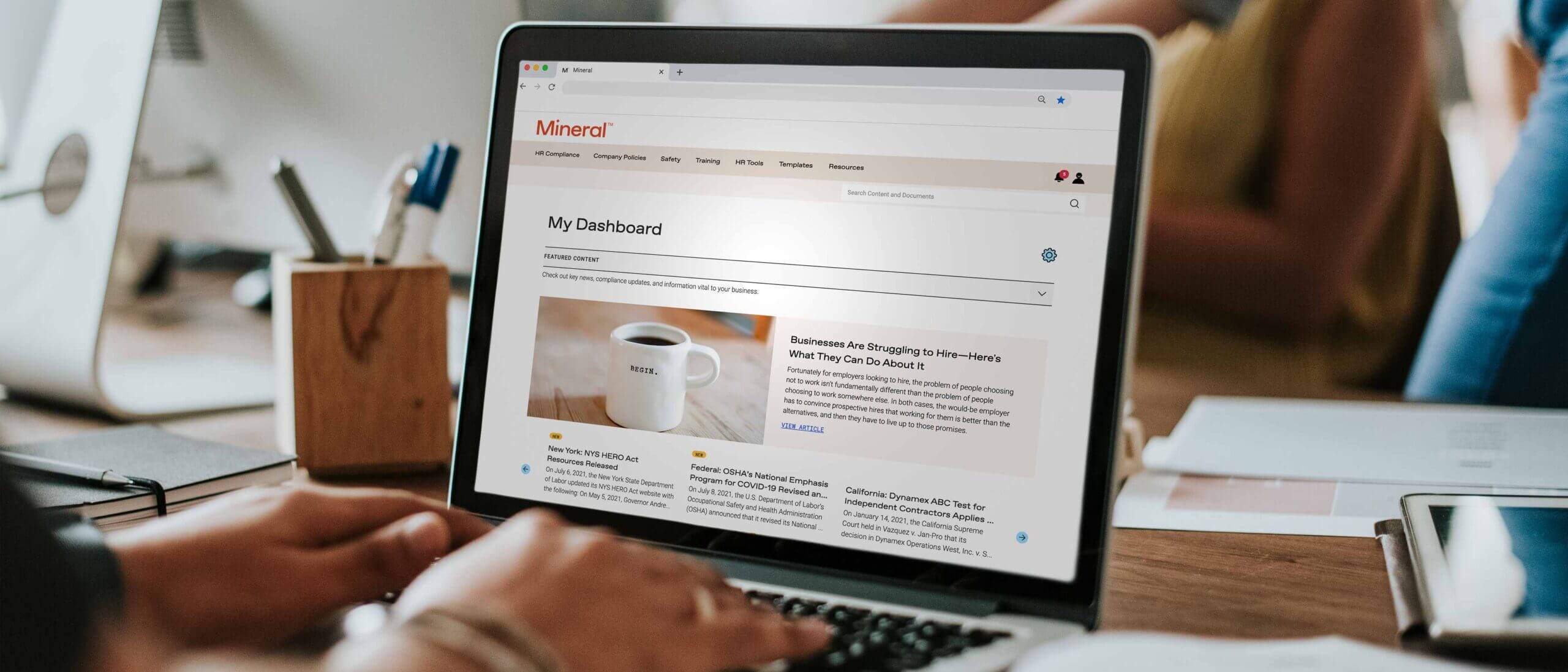ThinkHR Sees Increased Urgency Around Handbooks
Handbook policies are increasingly being used by employers to respond to critical events in 2020. Most recently, we’ve seen an uptick in clients using ThinkHR’s Living Handbook products.
This makes sense.
ThinkHR webinar data shows that 71% of 1,480 surveyed employers updated their workplace policies in response to the impacts of COVID-19. And during protests related to racial justice, 53% of almost 1,400 surveyed employers said they did the same in response to “current events.”
The Value of Policies
Policies have always been important to employers. They spell out what’s expected of employees, enable employees to reference key information, and also protect organizations from liability and lawsuits. Let’s dig into a couple of ideas of why focusing on policies is a good idea right now.
Multi-State Complexity
The number of remote employees has drastically increased across the nation, which brings up policy compliance issues. For example, if you have an employee working remotely out of state because of COVID-19, your handbook will likely need to include specific policies for that state. In addition to having multiple state-compliance policies in your handbook, you will need to keep track of related laws that these states may pass.
Employee Focus
A MetLife survey conducted in April 2020 showed that 67% of U.S. employees reported feeling more stressed than they did before the pandemic. This anxiety impacts our general outlook, emotional well-being, and motivation. Stable, written-out policies provide a foundation. They can help to ground employees’ wavering attention on what matters most to your organization. For practical purposes, it helps to select one or two key policies to focus on.
The Value of Compliance and Updates
Policies must be up to date with current federal, state, and local laws. Compliant policies help you avoid liability, manage discrimination issues, and proactively address problematic situations that are inevitable in the course of business. For example, an accurate policy that explains the Families First Coronavirus Response Act (FFCRA) can reduce employee confusion and conflict.
To be compliant, policies must be continually updated when necessary. Keeping policies updated shows that you, including leadership and management, take what you say seriously. That level of accountability is critical for communicating to employees that your organization is doing everything it needs to do during challenging times. It builds trust in the long run.
Best Practices for Keeping Policies Updated and Compliant
Compliant and updated policies provide a lot of benefits, so it’s important to know how to make that happen.
Responsive Updating
It’s very common for small employers to update their handbooks once a year. However, given the state of everything in 2020, it should be done more responsively. At the very least, employers should make updates in response to new state, local, and federal legislation, new regulations, emergency situations (such as the pandemic), and internal issues that your organization cares about, such as a performance reviews or harassment and discrimination prevention.
Legal and Expert Review
Ideally, all policy updates need to be either made by a legal expert (including in-house lawyers and third parties) or reviewed by one. “Employers are often surprised to find that minor differences in language (like between “request” and “require”) can make or break a policy when it comes to legality,” says Kara Govro, ThinkHR Senior Legal Analyst. A legal expert should also be savvy about new and pending legislation and regulations to ensure language is legally compliant.
Practically, making updates to every policy you have can be hard to manage. If resources are an issue, Govro recommends focusing on four topics that typically need expert legal review when appearing in policies: (1) money (2) benefits (3) discrimination, and (4) discipline.
Acknowledgement
Updating important policies does little good if no one knows about them. At a minimum, employees should acknowledge that they’ve read your handbook, and you should record those acknowledgements. Repeat this process for any updates you make as well. The more evidence you have that employees have read and actually understood your policies, the better you can hold all employees accountable to them.
To maximize understanding, also consider if any employees may benefit from reading policies in their native language.
There is no doubt a lot of work to be done with policies. They should be created in response to current or important events, be continuously updated, involve expert review, and be understood by employees.
ThinkHR solutions can take on the compliance and administrative burdens of updating handbooks for your small business. To learn about:
- How Living Handbook can further assist you in keeping up-to-date policies, download our white paper.
- How Living Handbook Plus, a premium solution, can solve complex policy challenges, watch our latest webinar.


